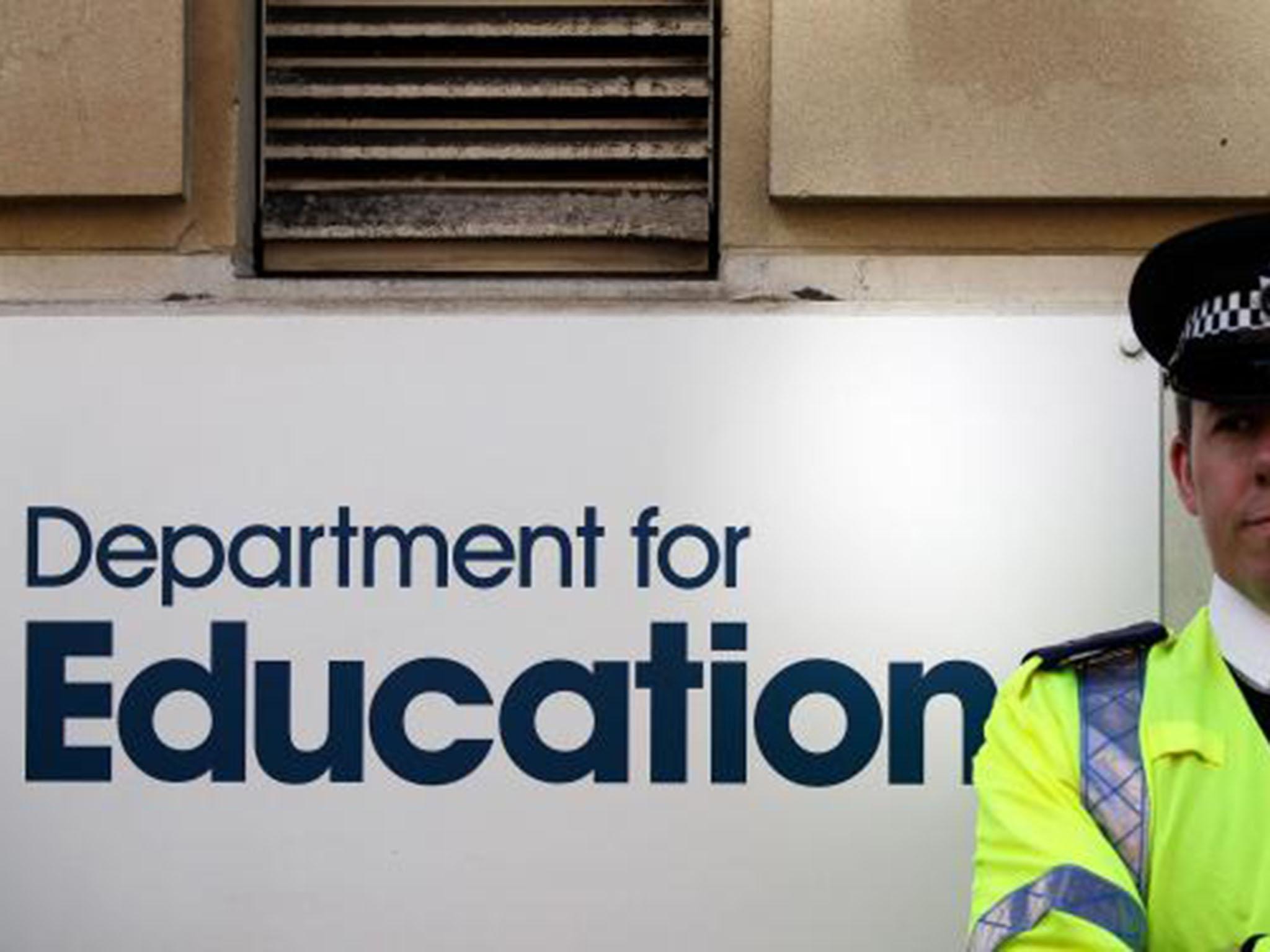Freedom of thought has been erased from the education system – no wonder there's a shortage of trainee teachers
The current thesis on education rewards conformity, box ticking, acceptance without question of both ideas and authority – certainly favourable in a corporate society – with the skewed result that those teachers who still value knowledge are considered somehow revolutionary

Your support helps us to tell the story
From reproductive rights to climate change to Big Tech, The Independent is on the ground when the story is developing. Whether it's investigating the financials of Elon Musk's pro-Trump PAC or producing our latest documentary, 'The A Word', which shines a light on the American women fighting for reproductive rights, we know how important it is to parse out the facts from the messaging.
At such a critical moment in US history, we need reporters on the ground. Your donation allows us to keep sending journalists to speak to both sides of the story.
The Independent is trusted by Americans across the entire political spectrum. And unlike many other quality news outlets, we choose not to lock Americans out of our reporting and analysis with paywalls. We believe quality journalism should be available to everyone, paid for by those who can afford it.
Your support makes all the difference.Last month I received my A-Level results. It was a moment of exhalation for thousands like me with futures anchored to a handful of letters on a page. Thankfully I secured my first choice place, however many of my peers did not, or failed to gain a place at all. I can’t begin to imagine the panic and disorientation this must have caused given the perception of education seems tethered to the rubric of the employment ladder.
But what does this say about the value of education in our society? Many would-be professionals whose inability to perform to the plumb-line of arbitrary exam parameters have been denied a straightforward path to their aspirations. The only winners are the exam boards profiting from remarks and repeats.
It would be an improvement if schooling had something to show apart from exam results, but all too often, and not at the fault of gifted teachers, this isn’t the case. For example, I studied English Literature from the CCEA syllabus. We read two plays, three novels and an extended poem. The density of the syllabus curtailed any extensive opportunity for real debate of the texts, substituting instead a presentation of the accepted critical viewpoints of each text. Assessment would be by the blatant fetishisation of “key terms” and “assessment objectives”, this in lieu of free discussion using our own intellectual capacity.
How obscene that academic and intellectual discourse are introduced to young people through this gauze of hampering parameters. I wanted to be a teacher until I realised how frustrating the status quo is; inspiring educators are forced to make the best of it, as frustrated as their students. A by-product of the density of the required material now is that teachers themselves are so inundated by marking and the proto-liturgy of exams that their own intellectual growth is diminished. Surely someone in the vocation – note the term vocation and not business – of education, should be afforded the chance to continue their professional development.
The reasons for this model are clear. The economic thesis of our society means schools simply measure employability, rather than providing a medium of education – an oversimplified standardisation of people in the interests of employment is the norm. What suffers is free intellectual discourse for its own sake.
These views aren’t new. Ivan Illich’s Deschooling Society states: “The pupil is thereby schooled to confuse teaching with learning, grade achievement with education, a diploma with competence.”
The current thesis on education rewards conformity, box ticking, acceptance without question of both ideas and authority – certainly favourable in a corporate society – with the skewed result that those teachers whose asides still espouse the value of knowledge as the zenith of education are considered somehow revolutionary. Of course the general sentiment of teachers in secondary education is that the temporary subjugation of these tenets of academic discourse is the necessary sacrifice to reach university, that bastion of free thought, but for how long?
Rather than sheltering academic colloquy from free market economics, neoliberalism has encouraged many universities to accept a business mentality, with the academic’s role becoming one of customer service. Parents querying their children’s lecturers over unfavourable feedback and a “customer’s always right” mentality are preached at the expense of intellectual honesty. This prognosis is undoubtedly bleak, and while the situation at universities is not nearly as bad as in schools, the trends are there.
The outcome as I have seen it this results period? The economy has lost talented thinkers and professionals, and derailed more. However sifting through the next generation of jobseekers is once again a uniform procedure for HR departments everywhere. Whether or not one thinks this is a favourable trade off is a matter of soul-searching with which society must engage.
Join our commenting forum
Join thought-provoking conversations, follow other Independent readers and see their replies
Comments